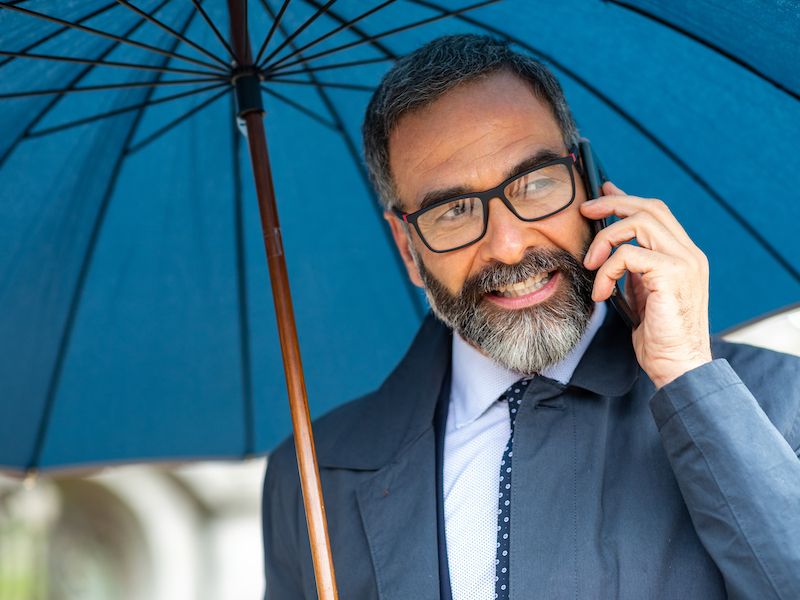
John’s having a difficult time at work because he can’t always make out conversations. He’s in denial and is constantly telling himself that everyone is mumbling. What’s more, he believes he’s too young to need hearing aids, so he has been procrastinating on seeking out a hearing specialist, and hasn’t had a hearing examination. Unfortunately, he’s been pumping up the volume on his earbuds in the meantime and doing significant damage to his ears. Sadly, his resistance to admitting he has hearing loss has stopped him from seeking out effective solutions.
But what John doesn’t realize is that his views are antiquated. Because the stigma around hearing loss is becoming less prevalent. Particularly, with younger people, it’s far less evident, even though you may still see it to some extent in some circles. (Isn’t that ironic?)
How Can Hearing Loss Stigma be Harmful?
Put simply, hearing loss has some social and cultural connections that aren’t always necessarily true or helpful. Loss of vitality and aging are oftentimes associated with loss of hearing. People are commonly worried that they will lose social standing if others know they have hearing loss. Some might think that hearing aids make you appear older or not as “cool”.
This problem might be thought of as trivial and not associated with reality. But there are a few very real implications for people who are attempting to cope with the stigma of hearing loss. Including these examples:
- Setbacks in your job (maybe you didn’t hear a critical sentence in a business meeting).
- Relationship problems (that isn’t just selective hearing…you really didn’t hear what was said).
- Putting of on hearing loss treatment (leading to less than optimal outcomes or unnecessary suffering).
- Difficulty finding employment (it’s unfortunate, but some people may be prejudiced against hearing loss even if it’s not entirely legal).
This list could go on for quite a while, but at this point you most likely get it.
Thankfully, this is all transforming, and it genuinely does feel as though the stigma over loss of hearing is on its way out.
Why is Hearing Loss Stigma Declining?
There are numerous substantial reasons why hearing loss stigma is declining. Population demographics are transforming and so is our perception of technology.
It’s Becoming More Common For Young Adults to Have Hearing Loss
Perhaps the number one reason that hearing loss stigma is vanishing is that hearing loss itself is becoming increasingly prevalent, particularly with younger people (and we’re talking mostly about young adults not children).
34 million U.S. citizens deal with loss of hearing according to most statical studies, which translates into 1 in 10 people. There are too many factors that cause this for us to entering into here (noise from several sources seems to be the largest factor), but the main point is that hearing loss is more common now than it ever has been before.
As hearing loss becomes more common, it becomes easier to break down the stigmas and misinformation concerning hearing conditions.
We’re More Comfortable With Technology
Maybe you were concerned that your first set of hearing aids would cause you to look old so you resisted wearing them. But nowadays, technology is so pervasive that hearing aids pretty much entirely blend in. No one notices them. This is also, partly, because hearing aids are smaller than they ever used to be and in the majority of instances are very subtle.
But in many cases hearing aids go unnoticed because today, everyones ears seem to have something in them. Technology itself is simply so pervasive (and individual) that no one bats an eyelash when you have a small piece of helpful technology yourself.
An Overdue Change in Thinking
Of course, those two factors are not the only causes for the reduction of hearing loss stigma. Recently, loss of hearing has been portrayed with more consistency (and more humanity) in popular culture, and a few notable celebrities have come out with their own hearing loss stories.
The more we see hearing loss in the world, the less stigma there will be. Now, of course, we want to stop loss of hearing in every way that we can. The ideal would be to reverse the trends in youth hearing loss while fighting against hearing loss stigma.
But at least as the stigma ends, more people will feel comfortable scheduling an appointment with their hearing specialist and getting normal screenings. This will help enhance overall hearing health and keep everybody hearing better longer.
